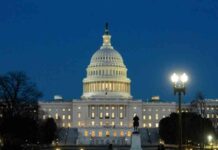Lucerne Festival: Regionaljournal Zentralschweiz – SRF Review and Highlights
The Regionaljournal Zentralschweiz has been buzzing with a variety of news stories that have captured the attention of the local community. From the impending closure of the emergency practice at Sursee Hospital to the budget deficits in Nidwalden, there is no shortage of topics to keep residents informed and engaged.
Emergency services are a crucial part of any community, providing essential care to those in need. However, the news that the emergency practice at Sursee Hospital will be closing by the end of the year has raised concerns among residents. This development will undoubtedly have an impact on the accessibility of emergency care in the region, and it is essential for authorities to address this issue promptly to ensure that residents continue to receive the care they need in times of crisis.
In another news story, the city of Lucerne has issued a warning about the risk of rockfall at Schlössli Schönegg. With the potential danger posed by falling rocks, it is imperative for residents and visitors to exercise caution when in the vicinity of the area. The city’s proactive approach in alerting the public to this hazard reflects a commitment to ensuring the safety of all individuals in the community.
The Regionaljournal Zentralschweiz has also reported on the ongoing controversy surrounding Spitex Obwalden. With pressure mounting from the parliament, it is clear that there are significant concerns about the management and operations of this essential service. It is crucial for authorities to address these issues promptly and transparently to ensure that residents receive the high-quality care they deserve.
In a more lighthearted news piece, an Urner filmmaker has delved into the history of the Tellspiele. This cultural exploration sheds light on the rich heritage and traditions of the region, providing residents with a deeper understanding of their roots. Such initiatives play a vital role in preserving and celebrating local history for future generations to appreciate.
Budgetary concerns have also been at the forefront of discussions in Nidwalden, with projections indicating potential deficits in the coming year. It is essential for authorities to carefully manage finances and make strategic decisions to address these challenges effectively. By taking proactive measures, the region can work towards achieving financial stability and ensuring the continued provision of essential services to residents.
In a move that has sparked debate, the Kantonsrat Schwyz is considering the introduction of payment cards for asylum seekers. This proposal has raised questions about the treatment of vulnerable individuals and the impact of such measures on their well-being. It is crucial for authorities to approach this issue with sensitivity and compassion, considering the human rights and dignity of all individuals involved.
The Regionaljournal Zentralschweiz has also highlighted the recent decision by the Schwyzer parliament to maintain the current Kantonsratswahlgesetz. This legislative choice reflects the parliament’s commitment to upholding democratic principles and ensuring fair and transparent elections. By keeping the electoral laws unchanged, the region can foster a system that promotes accountability and representation for all residents.
In a forward-thinking move, the Kantonsrat Schwyz has expressed interest in promoting deep geothermal energy. This renewable energy source has the potential to reduce carbon emissions and mitigate the impact of climate change. By investing in sustainable energy solutions, the region can contribute to a greener future and create a more environmentally friendly community for generations to come.
The Regionaljournal Zentralschweiz has also reported on the recent decision by the Luzerner parliament to increase its members‘ salaries. While this move has been met with criticism from some quarters, it is essential to recognize the valuable work done by elected officials and ensure that they are fairly compensated for their efforts. By providing adequate remuneration, the parliament can attract and retain talented individuals who are dedicated to serving the community.
In a heartwarming gesture, the Zuger Kantonsrat has given a platform to individuals with disabilities to share their perspectives and experiences. This inclusive approach reflects a commitment to diversity and inclusivity in the political process, ensuring that all voices are heard and valued. By promoting accessibility and representation for individuals with disabilities, the region can create a more inclusive and equitable society for all.
In conclusion, the Regionaljournal Zentralschweiz continues to provide valuable insights and updates on a wide range of topics that are relevant to the local community. From emergency services to energy initiatives, the news stories covered by the journal highlight the diverse issues facing the region and the efforts being made to address them. By staying informed and engaged with the news, residents can play an active role in shaping the future of their community and working towards a better tomorrow.















